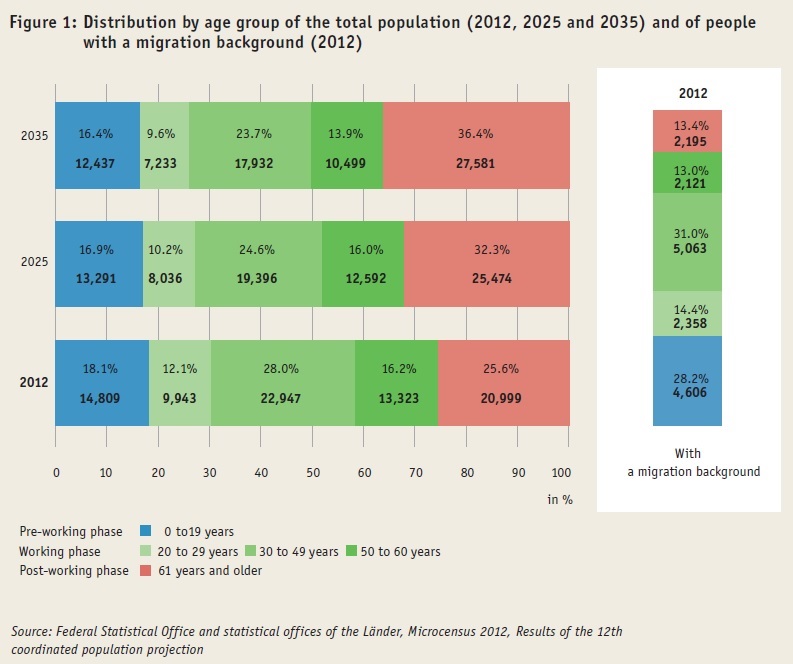 The Basic Law of 1949 grants every German citizen the right to self-fulfillment. In theory, citizens are able to choose the type of education they want and are given access to their preferred occupation or profession whether it is through a business, engineering, or nursing degree. The goal of educational policy is therefore to provide each citizen with opportunities to grow personally, professionally, and as a citizen in accordance with his or her abilities and preferences. The Länder are to provide equal educational opportunities and quality education for all through a variety of educational institutions.
The Basic Law of 1949 grants every German citizen the right to self-fulfillment. In theory, citizens are able to choose the type of education they want and are given access to their preferred occupation or profession whether it is through a business, engineering, or nursing degree. The goal of educational policy is therefore to provide each citizen with opportunities to grow personally, professionally, and as a citizen in accordance with his or her abilities and preferences. The Länder are to provide equal educational opportunities and quality education for all through a variety of educational institutions.
Education is free and in most types of school is coeducational. Almost all elementary and secondary schools and about 95 percent of higher education institutions are public. When churches or private organizations run kindergartens, they do so independently, and the public sector is not involved.
Most of the German universities are public institutions, charging fees of only around €60-200 per semester for each student, usually to cover expenses associated with the university cafeterias and (usually mandatory) public transport tickets. Thus, academic education is open to most citizens and studying is very common in Germany.
According to the terms of the Düsseldorf Treaty of 1955, the first major attempt to unify or coordinate the school systems of the Länder, school attendance is mandatory for a minimum of nine years (or in some Länder ten years), beginning at age six. A student who starts vocational training as an apprentice must attend a part-time vocational school until the age of eighteen.
The German tertiary education system distinguishes between two types of institutions: The term Universität (university) is reserved for institutions which have the right to confer doctorates. Other degree-awarding higher education institutions may use the more generic term Hochschule.
There is another type of university in Germany: the Fachhochschulen (Universities of Applied Sciences), which offer the same degrees as Universitäten, but often concentrate on applied science (as the English name suggests). Fachhochschulen have a more practical profile with a focus on employability. In research, they are rather geared to applied research instead of fundamental research.
Public universities in Germany are funded by the federal states and do not charge tuition fees. However, all enrolled students do have to pay a semester fee (Semesterbeitrag). This fee consists of an administrative fee for the university (only in some of the states), at many universities a fee for public transportation, and possibly more fees as decided by the university’s students’ parliament . Summed up, the semester fee usually ranges between €150 and €350.

Related Articles:
Why German Kids Carry a Giant Cone on Their First Day of School
German Dual Vocational Training System
German Education: An Overview of Excellence and Innovation
List of Universities in Germany
Elementary and Primary Education in Germany
Secondary Education in Germany
Vocational Education and Training in Germany
Tertiary or Higher Education in Germany







